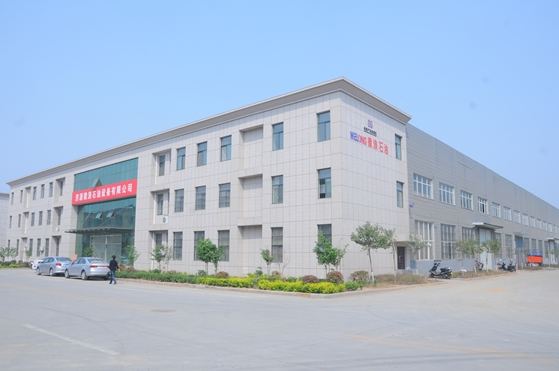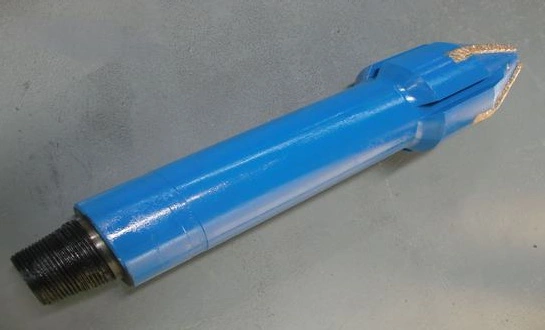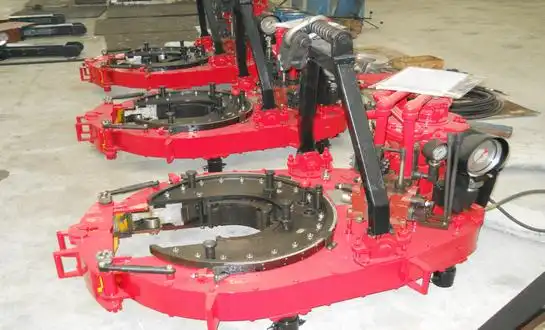Enhanced Safety and Reduced Risk
Keeping Employees Out of Dangerous Situations
Automatic Power Casing Tongs are essential for increasing worker safety during casing operations because they reduce the need for workers to be in dangerous locations. Because these sophisticated instruments can be operated remotely, workers can avoid potential hazards including falling objects, high-pressure systems, and the perils of being close to heavy or moving gear. This invention not only increases worker safety but also encourages adherence to stringent safety guidelines, which lowers the number of accidents. Additionally, it reduces the hazards associated with high-risk operations, which helps businesses reduce insurance premiums. For every operation, automated systems are a wise investment because they save money and provide safety.
Reducing Injuries from Manual Handling
Heavy manual labor is frequently required for traditional casing procedures, which increases the risk of back issues, sprains, and strains. Workers no longer have to manually handle large pipe sections thanks to automated casing power tongs, which lowers the possibility of musculoskeletal injuries and long-term health problems. This helps businesses maintain a healthier and more productive staff in addition to improving worker safety.
Regular and Managed Activities
A major contributing reason to many drilling-related mishaps is human error. Because automated casing power tongs operate consistently and under control, there is a lower chance of errors that could result in mishaps or equipment damage. These devices guarantee that every casing connection is done precisely and in accordance with predetermined criteria, eliminating the unpredictability that comes with manual operations and improving overall safety and dependability.
Improved Efficiency and Productivity
Quicker Running Times for Casing
The potential of automated casing power tongs to significantly cut down on casing running times is one of their biggest benefits. Uninterrupted casing operations are made possible by these machines' ability to run constantly without breaks or shift changes. Faster and smoother connections are the consequence of the automated process, which also saves time spent manually locating and aligning pipes. Shorter total drilling times and lower rig expenses are the results of this enhanced speed.
Regular Use of Torque
When it comes to precisely and consistently delivering torque to every casing connection, Automated Casing Power Tongs shine. This consistency lowers the possibility of over-tightening or under-tightening by guaranteeing that each joint is tightened to the precise specifications needed. Applying torque consistently improves the casing string's integrity and reduces the need for time-consuming repairs or remedial work because of bad connections.
Decreased Maintenance and Downtime
The ability of automated Casing Power Tongs to run constantly with little downtime is a major benefit over manual processes, which are frequently disrupted by the need for frequent breaks and are impacted by human weariness. These devices are typically more robust than conventional equipment and are designed to operate for extended periods of time. Their overall dependability is increased because they require less frequent maintenance. In order to prevent operations from being interrupted, maintenance can typically be planned for non-critical times. By lowering overall downtime and fostering a more economical and efficient operation, this capacity eventually boosts output while cutting down on delays.
Enhanced Precision and Quality Control
Precise Torque Monitoring and Documentation
Power for Automatic Casing Modern sensors and monitoring systems installed on tongs give real-time information on rotation speed, torque application, and other crucial factors. This careful observation guarantees that every casing connection satisfies the necessary requirements and enables prompt corrections when necessary. The capacity to capture and preserve this data also yields useful information for troubleshooting, quality assurance, and future use.
Reducing Connection Errors
The chance of connection failures is greatly decreased by the reliable and regulated operation of automated casing power tongs. These devices reduce the possibility of leaks, cross-threading, and other connection problems that could jeopardize well integrity by removing human variability and guaranteeing that every joint is tightened to the proper specifications. This increased dependability results in fewer expensive repairs and less time lost to unproductive activities.
Adaptability to Different Types and Sizes of Casing
Versatility is a key consideration in the design of contemporary automated casing power tongs. They may be readily modified to accommodate a variety of casing types and sizes, facilitating smooth transitions between well sections. This flexibility guarantees uniform quality across different casing strings, irrespective of their specs, while also increasing efficiency.
Conclusion
There are many important benefits to using automated casing power tongs. These cutting-edge instruments are revolutionizing the way casing operations are carried out in the oil and gas sector, from higher precision and quality control to increased safety and efficiency. We may anticipate more advancements in this area as technology develops further, which will further optimize drilling procedures and support safer, more effective, and more fruitful operations. Please do not hesitate to contact us at oiltools15@welongpost.com for additional information regarding automated Casing Power Tongs and other oilfield items.





